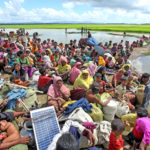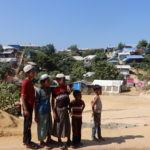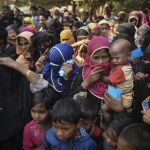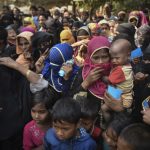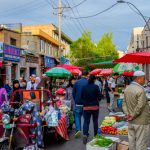India Cracks Down Further on Kashmir Under the Cover of COVID-19
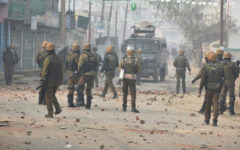
Indian soldiers fatally shot a young Kashmiri man on Wednesday, claiming he’d ignored instructions to stop at two checkpoints in the disputed region of Kashmir. However, eyewitnesses state that the man – who was complying with security officials – was shot in the back after speaking to them.
Subsequent public demonstrations and an internet shutdown mirrored those that happened in Kashmir a week prior, when a leader of Indigenous militant group Hizbul Mujahideen was killed by Indian troops, which have stepped up counterinsurgency operations during the COVID lockdown.
Locals have reported that the Bharatiya Janata Party (BJP) government has taken the opportunity afforded by the pandemic to carry out attacks, incarcerate people for being outside, harassing medical professionals and cracking down on the free flow of information.
The pandemic restrictions imposed in Kashmir come on the back of another months-long shutdown that was instigated in the region in August last year, when Delhi removed the states special status and implemented harsh measures, some of which were still in place for the virus lockdown.
And the ongoing crackdown in India’s only Muslim-majority state feeds into the BJP’s broadening anti-Islam agenda, which has seen immigration laws passed that target Muslims, along with recent anti-Muslim progroms that were carried out in the nation’s capital.
Tightening its grip
Former Australian Greens Senator Lee Rhiannon said that while Indian PM Narendra Modi is presenting an image of a nation taking a strong proactive stance to the COVID-19 crisis, she warns this isn’t the case in Kashmir, where there’s been further clamping down on locals.
The long-term supporter of Kashmiri self-determination pointed to the key issues of health, the internet and political prisoners, which have been worsening since Kashmir’s special status was revoked last August and are now only being compounded under pandemic restrictions.
“The Indian health ministry invited doctors across India, including Kashmir, for online pandemic training,” Ms Rhiannon told Sydney Criminal Lawyers. “And the government said it’s restored the internet in Kashmir following the August lockdown, but it’s only in some areas and it’s only 2G.”
“That doesn’t allow people to participate in training or to access information sheets,” she continued. “Modi is sending messages that they’re actually doing something, but it’s inflicting more hardship on the people of Kashmir. We’re talking 8 million people that can’t access life-saving information.”
According to Rhiannon, the desperate situation in the Himalayan state is further heightened by the over 22,000 migrant workers left destitute in the capital of Srinagar, and the fact that many Kashmiri political prisoners continue to be detained in now dangerous facilities throughout the country
A global security flashpoint
A presidential decree revoked article 370 of the Indian Constitution on 5 August 2019. This removed Muslim-majority Kashmir’s special status, which permitted the region – that’s claimed by both India and Pakistan – a degree of autonomy in terms of law-making.
There has been an armed rebellion against Indian rule in Kashmir since 1989. Militants seek independence or unification with the part of Kashmir administered by Pakistan. And the region between the two nuclear-armed nations is considered to be one of the most volatile in the world.
In bringing Kashmir under direct federal rule, the BJP sent thousands of more troops into the state. The government also implemented a curfew, shut down telecommunications and the internet and political opponents were arrested and imprisoned.
And just like other colonised regions of the world – think, West Papua or the Uyghurs in far western China – Delhi has implemented a transmigration program, whereby non-Kashmiri Indian citizens are encouraged to move to Kashmir, thus diluting the Indigenous demographic in the region.
Intensified militarisation
“In August, the Indian government put 38,000 additional troops into Kashmir, taking the number to well over 800,000 – some say close to a million,” Ms Rhiannon continued. “The level of militarisation is the highest anywhere in the world.”
The issue of militancy is the excuse Indian governments have used to justify their heavy military presence, she explained, adding that increasingly rebels are made up of well-educated, middle class men, who, whilst studying elsewhere in India, have been subjected to discriminatory treatment.
Ms Rhiannon likened the moves of the BJP in Kashmir to the way the Israeli government operates in relation to settlements in the West Bank. And she described early morning raids on Kashmiri households, which, she posits, plays into Modi’s wider agenda of “advancing Hindu nationalism”.
“The situation for Muslims in general across India is deteriorating at an incredibly fast rate,” the veteran Greens politician made clear. “The BJP is rooted in fascism. When you look at their history and their actions it has to be said.”
The nationalist agenda
Indian parliament passed citizenship laws last December that extend a helping hand to illegal immigrants from persecuted religious minorities fleeing neighbouring Muslim nations. This means they can apply for citizenship after six years, but it doesn’t apply to Muslims fleeing persecution.
This targeting of Muslim immigrants via exclusion is particularly stark in a nation where not only do Muslims make up the largest minority in the country, but India’s Islamic adherents make up the second largest Muslim population on the planet.
These measures have been widely criticised for enshrining religious discrimination in the laws of a secular nation. However, commentators are hardly surprised this is happening under Modi, who as chief minister of Gujarat in 2002, presided over state wide Hindu attacks upon Muslim communities.
Meanwhile, the government has instigated a citizenship registry process to weed out undocumented migrants. And in the north eastern state of Assam, the government has been building camps to detain an estimated 2 million mostly Muslim illegal immigrants.
The COVID jihad
“Advancing the agenda of the Hindu nation has clearly been the intent of the BJP. Particularly, after its win in the May election last year, as it was a large part of its platform,” Ms Rhiannon remarked. “Then a few months later, in early August, came the crackdown in Kashmir.”
The former Australian senator explained that the BJP has an extremely militant wing that has been calling for urgent results in terms of “getting rid of Muslims”. And the revoking of Kashmir’s special status was the first step in a larger process that can be seen continuing through the citizenship laws.
“This enhances the anti-Muslim narrative that’s been developing for a long time,” Ms Rhiannon concluded. “Now the term COVID jihad is being used. Authorities and the media who support Modi are arguing that Muslims have come in from other countries to deliberately spread COVID-19.”


